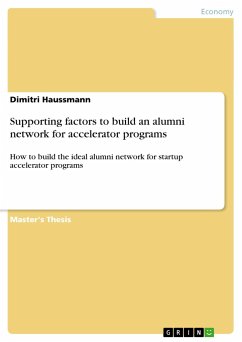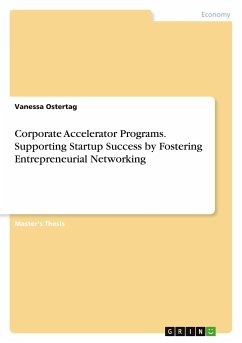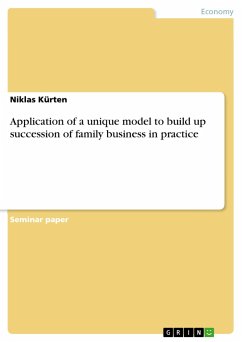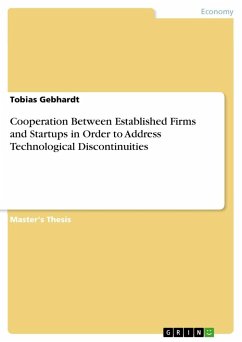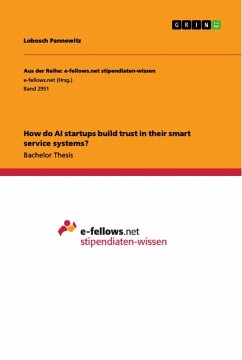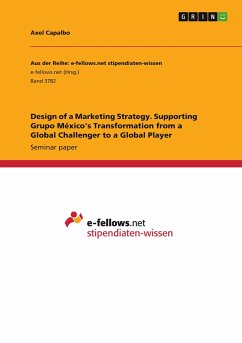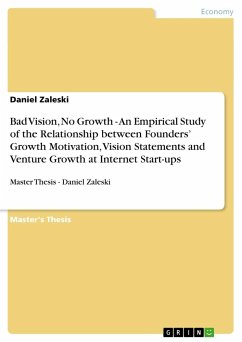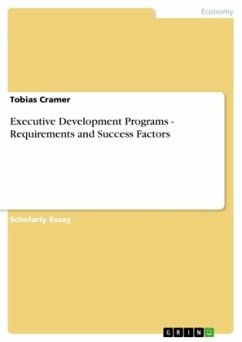Master's Thesis from the year 2013 in the subject Business economics - Company formation, Business Plans, grade: 1,6, VU University Amsterdam , course: Entrepreneurship, language: English, abstract: Accelerator programs are a new phenomenon within the entrepreneurial ecosystem, helping start-ups to develop and launch new business models. So far most accelerators focus their whole attention on the development of their program, without taking future activities into account. Only a few authors like Miller & Bound (2011) and Christiansen (2009) have researched this nascent field, illustrating the main characteristics and supporting factors during the program. So far, no relevant research has been conducted within the field of alumni networks, especially the main needs of alumni start-ups. With our thesis we want to fill this gap and research the key supporting factors of how to build an alumni network for accelerator programs.With our research we generated new insights into the field of accelerator programs, especially elaborating the most essential supporting factors to build an alumni network. These findings serve as a starting point for future research, showing the needs of alumni start-ups and areas of improvement. Our research shows a strong focus on American and Dutch accelerator programs, which is rooted in the personal linkage of the authors within this field. Therefore we suggest testing our findings in other regional areas such as Africa, Asia and Russia in order to find similarities and differences. From a practical perspective we offer guidelines for managing directors of accelerator programs, stating which supporting factors to implement. We propose that our findings can also be transferred to other industries, such as scientific and corporate incubator programs.
Bitte wählen Sie Ihr Anliegen aus.
Rechnungen
Retourenschein anfordern
Bestellstatus
Storno

